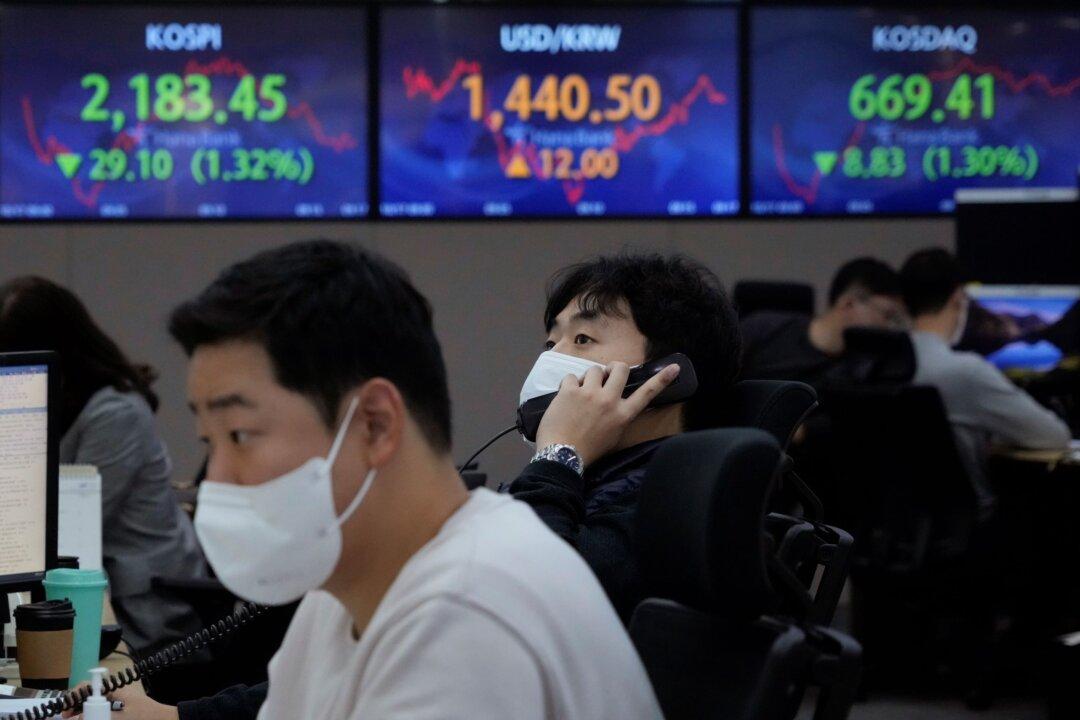TOKYO—Global shares were mostly higher Monday as investors kept their eyes on a weeklong Communist Party congress in China.
France’s CAC 40 added 0.5 percent in early trading to 5,961.27. Germany’s DAX gained 0.5 percent to 12,498.72. Britain’s FTSE 100 rose 0.5 percent to 6,894.84. The future for the Dow industrials was up 0.7 percent, while the contract for the S&P 500 gained 0.9 percent.





